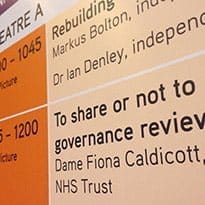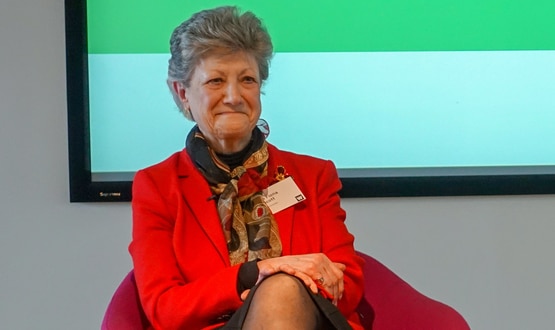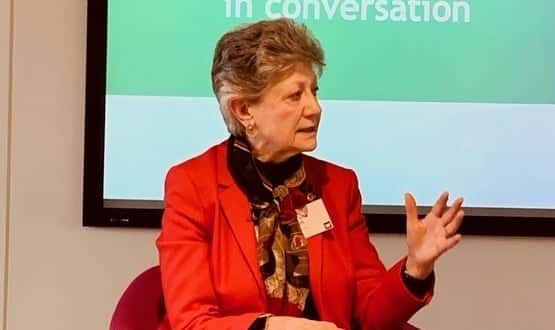Fiona Caldicott calls for IG name change
- 6 November 2012

The term ‘information governance’ could be changed to ‘clinical governance’ as part of encouraging a cultural shift in the NHS towards more information sharing, Dame Fiona Caldicott has said.
Dame Fiona is leading an independent review of information governance in the health service. Her report is due to go to the health secretary early next year.
She told the audience at EHI Live 2012 that one of the review committee’s recommendations will be that the language used to describe IG needs to be simplified and clarified.
“The expression ‘information governance’ doesn’t immediately fill people with a look of enthusiasm and excitement,” she explained.
She suggested the terminology be changed to ‘clinical governance’ in order to encourage greater understanding and commitment to the need to protect patient privacy and confidentiality while ensuring that clinicians have the necessary information to treat their patients.
“We will recommend some ways in which the language could be clarified,” she said.
She said it has become clear from her public consultation that in the NHS there is an “erring on the side of not sharing” that is not acting in the patients’ interest.
She added that there is support from the population for sharing of identifiable information when it comes to their individual care, but not necessarily for commissioning or research purposes.
Dame Fiona said issues around sharing data are “most pressing” at the interface between health and social care at a time when more patients are receiving care crossing organisational boundaries.
“Anyone thinking of integrating patient pathways can immediately see there are some issues that are going to cause quite a lot of potential tension that need a solution,” she explained.
“One of the areas I’m particularly concerned about is education and training. It’s clear to us that there isn’t the confidence we would like to see in clinicians and professionals about the rules that relate to the use of information, particularly identifiable information.”
“There’s a lot of work to be done in making sure staff who have responsibility in IG are aware of what their responsibilities are and how to get assistance if they are not sure of the answer to questions,” she added.
Dame Fiona said there is “a lot of hiding behind the Data Protection Act and IG rules.”
Much of that fear has developed from confusion around the idea of “need to know” and the large fines being handed down by the Information Commissioners Office for mishandling of patient data.
Dame Fiona said that although her committee is supportive of sanctions, the situation is made complex by the fact that money paid in fines by NHS trusts is then not available for patient care.
She explained that her review will address the necessary change in culture to address the increasing use of technology and the ability to “move data around the system.”
It will also look to clarify when explicit patient consent is required before data is shared.
“There’s a lot of work being done with commissioners about when they need patient identifiable data and how they can have a legal basis for that and when anonymised data can serve the purpose,” she said.





